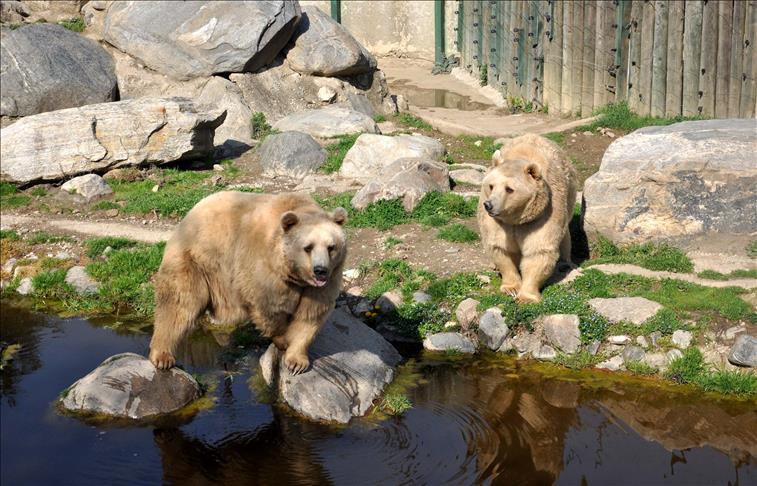
By Kate Bartlett
PHNOM PENH, Cambodia
While Cambodia has the highest number of seizures of trafficked bears in Asia, the country has made significant inroads in its efforts to curb the illegal trade in the animals and their parts, according to a report by the wildlife monitoring network Traffic released Thursday.
Between 2001 and 2011, 190 bear-related seizures were recorded in Cambodia -- more than Vietnam and Thailand where there were 102 and 29 seizures, respectively -- according to the report entitled "Brought to Bear: An Analysis of Seizures Across Asia."
"The motivations for trading bears are wide ranging, including poaching live bears to stock bile farming operations; pet or dancing bear trade; sourcing dead bears and their parts for meat consumption; skins and trophies; and/or gallbladders and bile extractions to manufacture traditional medicines," Traffic said.
While more than 6,000 bear paws -- traditionally used in soup in several Asian nations -- were seized during the study period, mostly in China and Russia, live bears were the second most seized commodity -- with the most animals being confiscated in Cambodia.
Many of these bears were rescued on their way to bile farms in neighboring Vietnam or China -- where their bile is cruelly extracted and used in traditional medicines, Traffic said.
However, the high number of live bears seized in Cambodia was in a sense a positive, the report said, because it showed the country has made inroads in cracking down on wildlife trafficking.
"Cambodia... may represent an anomaly across the region being the country with the most reported bear seizures (190), recording three times more seizures within its borders (180 cases seized domestically, plus a further 10 seizures reported internationally) than any other country," the report said.
In its recommendations, Traffic suggested that other countries in the region emulate Cambodia in regards to law enforcement.
"This high level of sustained enforcement and efficacious seizure reporting by Cambodia is most likely attributable to the Wildlife Rapid Rescue Team (WRRT), a highly effective collaboration between the Cambodian Ministry of the Environment, the Cambodian Forestry Administration, and the NGO Wildlife Alliance, responsible for apprehending and reporting 93 percent of bear seizures within Cambodia," the group said.
China, Vietnam and Cambodia should share intelligence on wildlife trafficking, they added.
However, while the study had recorded some Asian countries handing down fines to traffickers, no details on prison sentences were available.
Nev Broadis, regional director of the Free the Bears organization that runs a large sanctuary for rescued sun and moon bears outside of Phnom Penh, agreed that Cambodia had become a country to follow in terms of cracking down on the bear trade.
"We've used Cambodia as a model to show our counterparts in Vietnam and Laos," he told the Anadolu Agency on Thursday. "But it’s possible any existing trade in Cambodia has been driven underground."
"Cambodia is essentially a source country... as far as we know there are no bile farms in the country that are operating," he said.
While bear owners face hefty fines of up to three times the value of the illegal animal, prosecution of individuals is not a priority in a country where a third of the population lives below the poverty line, Broadis acknowledged.
Anadolu Agency website contains only a portion of the news stories offered to subscribers in the AA News Broadcasting System (HAS), and in summarized form. Please contact us for subscription options.

